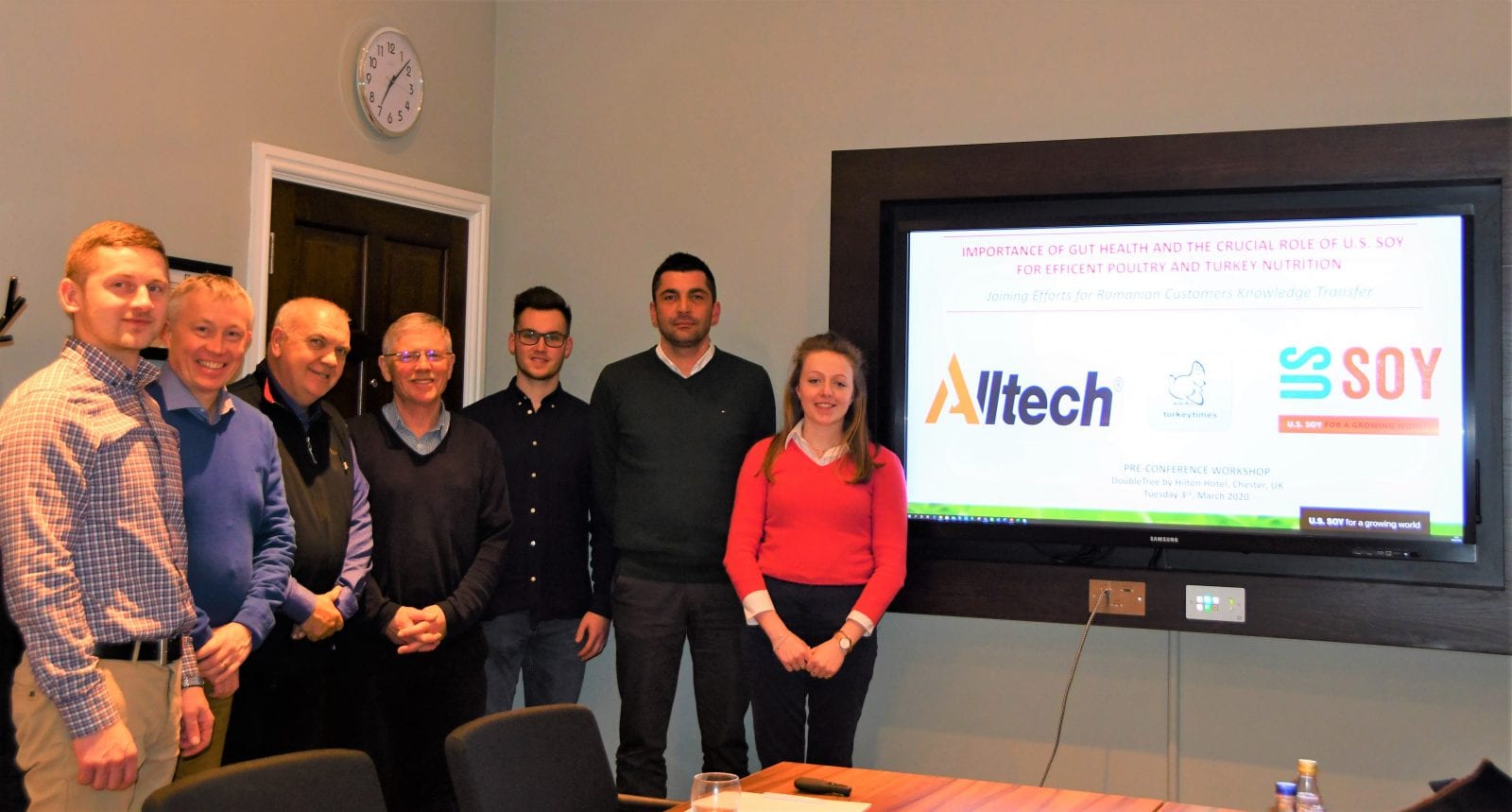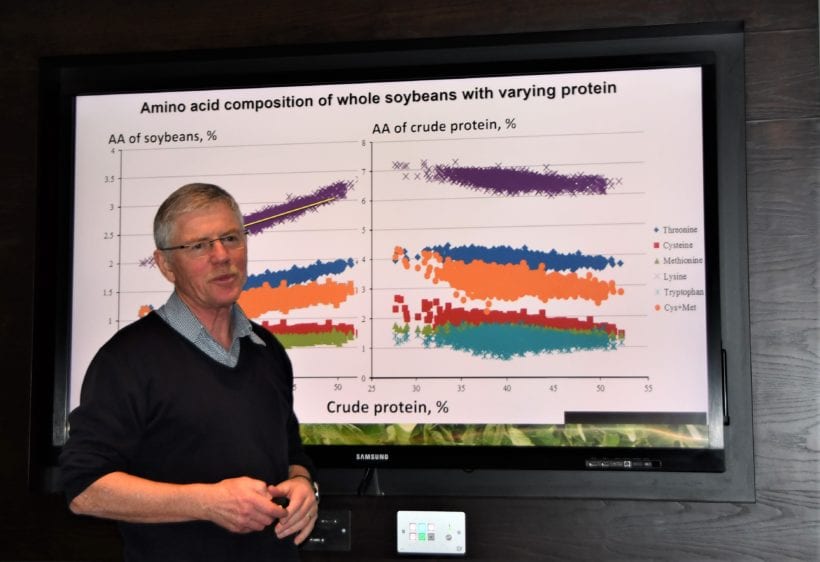Romanian Customers Attend USSEC Workshop on Turkey Poultry Nutrition
- Category:
- Animal Utilization
- General News

Editor’s note: The event featured in this story took place prior to the USSEC travel ban due to COVID-19.
In an attempt to follow up on the diversification trends of the Eastern European poultry industry and with the goal of capturing market opportunities for U.S. Soy, USSEC organized an activity in the United Kingdom during the first week of March for Romanian customers. Romania is a leading turkey meat-producing country. A selected group of Romanian nutritionists, turkey farm managers, and veterinarians attended the USSEC workshop dedicated to importance of gut health and the crucial role of U.S. Soy for efficient poultry and turkey nutrition.

Emily Marshall, Poultry Coordinator at Alltech UK, welcomed the USSEC group and gave presentations delivering the latest updates on gut health for poultry and turkey production. The audience was informed of the importance of gut health as the first line of defense for optimal poultry health and nutrition’s role in establishing efficient digestion, in the era of antibiotic-free production. USSEC consultants Dr. Jan van Eys and Dr. Carsten Pedersen introduced the role and advantages of U.S. Soy in efficient turkey meat production through technical presentations.
“Traditionally, in Romania the turkey’s diet is made up mainly of corn and soybean meal as macro ingredients. Since soy is the main source of amino acids in turkeys, participants showed a high interest in learning more about how to properly differentiate and use soybean meals of different origins,” said USSEC consultant Dr. Iani Chihaia. “In fact, turkey diets have the highest inclusion level of soybean meal, starting from a high-protein starter diet and then switching to higher carbohydrates as they near market weight, but still soy remains the most important amino acids supplier in the finisher diets.”

“Soybean meal provides lysine, which is essential for turkey nutrition. Taking into account the sensitivity of turkey poultry to soybean meal quality, understanding the consequence of Maillard reaction on amino acids digestibility and how processing parameters are influencing soybean meal quality is key besides the use of proper methods to measure the Maillard Reaction in soybean meal,” stated Dr. Pedersen during his presentation, “The Maillard Reaction’s Impact on Animal Nutrition.”

Dr. van Eys’ presentation on the latest updates on “Value Added Soy Ingredients in Poultry and Turkey Nutrition” revisited the need for high protein soy ingredients in pre-starters and starters for turkeys and broilers and challenged participants in understanding how soybean meal, fermented soybean meal, soy protein concentrates, and soy protein isolates should be better used in young turkey feeding and nutrition. This is particularly true for U.S. sustainable soy, as a great source of lysine along with other essential amino acids in efficient and sustainable turkey nutrition.

The USSEC workshop on turkey poultry nutrition and feeding was greatly appreciated by attendees and allowed time for in-depth discussions. This also generated conversations around soy origin and quality. Attendees left with an appreciation of the opportunity to attend this event and the solid commitment to U.S. soy products: beans, meals, and value-added soy protein products. Alltech’s presence and first-hand information on gut health brought a greater understanding of the current trends in turkey poultry nutrition.